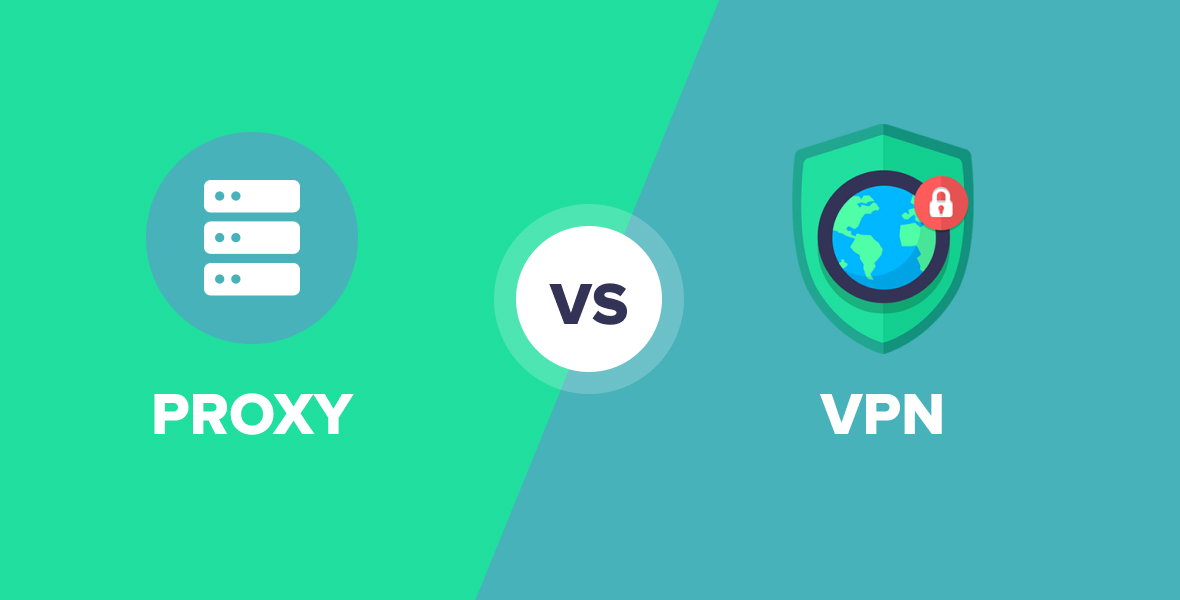
When you go into your computer’s or smartphone’s network security settings, you’ll frequently notice choices like “VPN” or “Proxy.” Regardless of the fact that they execute similar functions,but also they are very different. The distinctions among the two will be discussed in this article, as well as understand when you should use VPN and proxy.
What exactly is a proxy?
Whenever you surf online, your computer system establishes a direct connection to a website and starts receiving the webpages for you to view. If you utilise a proxy, your system routes all of your online traffic via it first. Your request is forwarded to the destination website, which downloads the necessary information and returns it to you.
Sometimes you may wish to surf a website privately, with all traffic coming from the proxy server rather than your computer. You must get around a content ban. For instance, let us take an example to understand – your Netflix subscription from the United Kingdom will not operate in India, as it is well known. When you link to an Indian proxy server, however, it seems like you are viewing TV in the United Kingdom, and all works as intended.
Proxies have a few drawbacks, despite the fact that they operate well:
The site owner can observe every one of the online traffic that flows via a proxy. Because online communication between your computer and the proxy, as well as between the proxy and the website, is unsecured, a skilled hacker can overhear and steal information in transit.
What is VPN?

VPN is the same as a proxy server.If your system is configured to link to some other server, internet activity may be routed through that access point of the website. A Vpn service, on the other hand, can route and anonymize all of your network traffic, whereas a proxy server can simply reroute web requests.
However, the VPN has one big advantage: all data is protected. This implies that attackers will not be able to hack data sent between your machine and the VPN server, protecting your critical personal details.
VPNs are the safest option. The VPN has a major benefit over a proxy in that it encrypts and routes all of your communication networks. A proxy server provides extra features in addition to anonymizing your web activity.
If you’re an IT sole trader, then you are responsible for data and personal security, VPN as well proxy sites like thepirateproxybay.com offer many benefits, and you’ll probably need to set them up for your business or organisation.
Drawbacks of Proxy Servers
If you use proxy servers to hide your online activities, you may experience performance problems that prohibit you from watching or storing the content you want. Websites might take a long time to load due to high connection times and other activity on the web server. As a consequence, some clients pay for a better proxy server, which limits the number of people who may access it, ability to connect more quickly.
Proxies are also prone to security vulnerabilities: they may be hacked, allowing bad actors to penetrate networks or steal personal information. Some proxies can nonetheless track your surfing activities, as well as record login information, therefore nullifying the anonymity guarantee.
Drawbacks of VPN:
VPNs can sometimes have stability issues, regardless of how close you are to the VPN server you’re accessing to. Because VPNs rely on a local client to make a link to the Vpn service, any local CPU or storage difficulties will cause the communications to slow down. VPNs are more costlier to use than proxy servers, and they are sometimes more difficult to operate.
VPNs, like proxy servers, cannot ensure surfing anonymity. Neither of these companies promise that your information is always secure. When you visit a new website, a VPN can only ensure an end-to-end secure link if you utilise the HTTPS protocol.
Your files are encrypted until it reaches the VPN, but they may thereafter be decrypted until they reach the web server. This may have been unimportant for certain sites, such as a data homepage with no registration or payment choices, but make absolutely sure any areas that demand an account or online transactions – or any confidential material – are configured to utilise HTTPS. Consider that the S stands for “significantly more secured.
Benefits of Using a VPN and Using a Proxy

The most compelling reason to use a VPN rather than a proxy is the entire encryption provided by the VPN for all communication. A VPN is much safer than a proxy that costs the same amount. VPN companies run their respective networks, and you access them using their IP addresses. The best VPN companies promise a logless guarantee, that also guarantees they won’t sell your information to anyone.
Conclusion
Both are equal, nothing is less or more because they both are performing the same job, redirecting through a distant server and disguising your IP address. Even though choosing them depends upon your needs and requirements, if you are more conscious about your privacy and security then VPN is best over proxy without doubt.